Sen. Rand Paul (R-KY) on Tuesday morning joined a group of World War II and other veterans at the World War II Memorial on the National Mall for an honor flight with Honor Flight of the Bluegrass.
Paul told Breitbart News:
We’re proud of our veterans and we’re proud of their service to the country. The saying is ‘freedom is not free,’ it takes a great deal of sacrifice from our veterans from both the World War II era and [other eras]. I met people here today from World War II, I met Korean War veterans, I met Vietnam veterans, I met Iraq war veterans—and sometimes all in the same family. One family had mother and father or grandmother and grandfather and they both served in World War II and the young men that were pushing them around were Vietnam War veterans that were their sons. There’s a lot of proud traditions of families—multi-generational families—who have served the country.
Paul, a one-time presidential candidate who dropped out after the Iowa caucuses and has since backed GOP presidential nominee Donald Trump, is running for re-election to the U.S. Senate in Kentucky. But this trip with veterans—and his work in the U.S. Senate, oftentimes regarded as the most interesting and independent in a hyper-partisan age—is focused more on giving back to the 84 veterans from Kentucky on this honor flight. Eighty percent of the veterans on the trip were World War II vets, with an average age over 92-years-old.
Paul, a noted skeptic of the use of military force when unnecessary, told Breitbart News that he believes Congress and the executive branch have lost that sense of what is in the national interest when deciding whether or not to go to war these days. When asked during his exclusive interview with Breitbart News about his thoughts on the difference between World War II and today’s battles on the world stage, Paul argued that the political class in Washington, D.C., right now does not appreciate what is in America’s interest when making these decisions. Paul said:
Well one of the important things our Founding Fathers put forward was that Congress would approve of wars, the people would approve of it through Congress. And I think when we’ve been attacked our country has been unified really in responding to say we’re going to rebel all attackers. So when we were attacked in Pearl Harbor, the vote was nearly unanimous in Congress. I think it was the next day, the day after Pearl Harbor, Congress came in and voted nearly unanimous. The same way when we were attacked on 9/11, we came back a few weeks later and we voted to go to war with the people who attacked us on 9/11. I think that’s what our Founding Fathers intended, but it’s also a better way to go to war. When you have to go to war the country needs to be unified, and one way you unify the country is by Congress voting on whether or not we should be at war, and what are the terms of the engagement.
Paul told Breitbart News he plans to attempt to force another vote on an authorization of force measure in Congress this week. He said:
About a year ago I brought up in committee a use of authorization of force, to say what we should be doing in the Middle East now, and it was never affirmatively voted for, but I did force the committee to vote on it. This week I will try to force a vote in Congress again, I have an amendment to the Defense Authorization Bill. My amendment says that the use of force authorization from 2001, the 9/11, doesn’t apply today, and the one from the Iraq War doesn’t apply today, that there needs to be a new force resolution, or the war is not legal. So I currently consider that what we are doing now as unconstitutional and in order to make it legal, in order to make it constitutional, there should be another vote in Congress.
Paul also said he believes President Obama’s having been at war every day of his presidency, for more than seven years—the longest in the history of the country for a president—is a sign of weakness from Obama. He elaborated:
Well you know I think there is a certain amount of weakness that invites war and I would say in many ways he hasn’t definitively had a foreign policy that gives direction or purpose. And so it seems to list one way or another, and I think that actually weakness causes more wars sometimes. So he brought troops home from Iraq, but now he is halfway going back in, a little bit at a time, and I sometimes will make the wisecrack that who goes to war with 250 people? You know he recently put 250 people more into war. He recently sent 10 Syrian moderates that we spend hundreds of millions of dollars training into war, and it’s like, who goes to war with 10 people, who goes to war with 250 people? But part of that fecklessness is because we as a people have not voted on war, and we have not come together to say what our purpose is, and so we are somewhat rudderless, and so I think his foreign policy is a rudderless one, and it certainly doesn’t seem to be representing peace very well.
Paul added that there needs to be a coherent plan put forward with achievable objectives—and limited unintended consequences—for dealing with the United States’ enemies like the Islamic State on the world stage. He went on:
I think the first thing we should do is, that Congress should vote on whether we should be there or not. There should be an authorization from Congress. The second thing though, is we should be aware of the unintended consequences of intervention. I think our intervention in Libya backfired and has made it less safe in Libya, has given ISIS a foothold in Libya. The same way in Syria, I think pushing Assad back has created a safe haven for ISIS to grow and i really think ISIS grew as we were pushing Assad back and might not have happened to the degree, or it might not have happened at all if Assad had not been weakened by that long time Civil War. So the first thing is to understand that it’s a mess and the second is to say we need to know what our national interest is. And we need to, through Congress debate what is in our vital national interest, and then move forward, but we shouldn’t allow all that power to accumulate and devolve to the presidency.
Paul added he plans to continue pushing for the release of the 28 pages kept from the public inside the 9/11 Commission report regarding whether Saudi Arabia was involved in 9/11.
“You know I have a bill to release the 28 pages, I’ve read the 28 pages, I frankly think there is nothing in the 28 pages that the public can’t hear,” Paul said. “In fact. if you read Senator Bob Graham’s book, Intelligence Matters, he discusses a lot of what indirectly is in the 28 pages. Our Bill would offer them up to CIA, if they thought there was a name that needed to be marked out they could, but they shouldn’t redact the whole thing, and I think really that there still needs to be a debate about whether or not Saudi Arabia was involved with 9/11 either directly or indirectly and I think the evidence deserves to be seen by the American people.”
Breitbart News’ Nicholas Gilbertson contributed reporting and photography to this report.
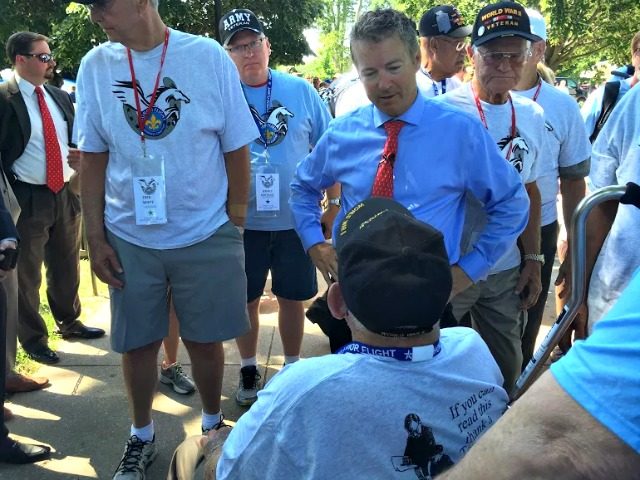
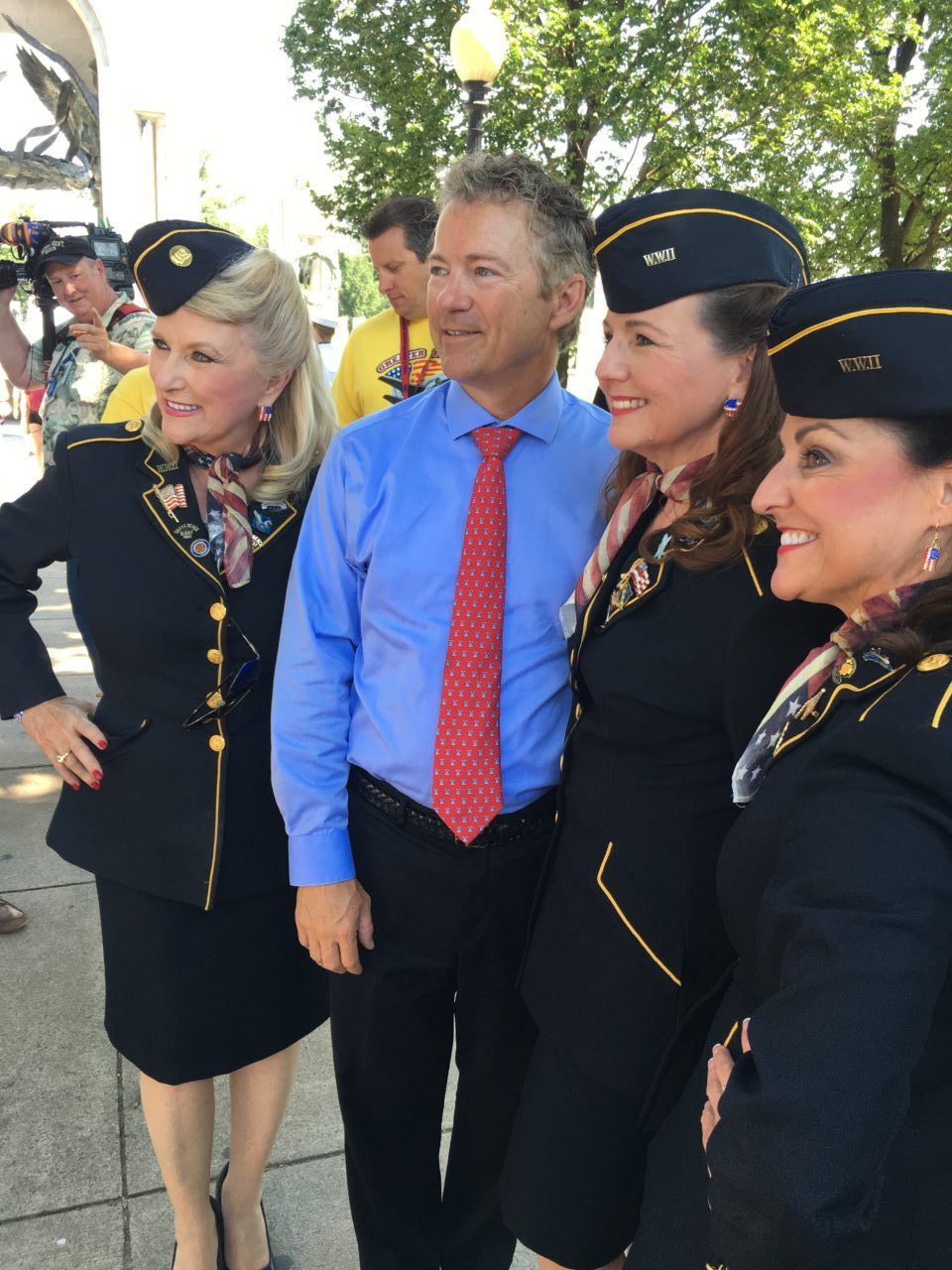
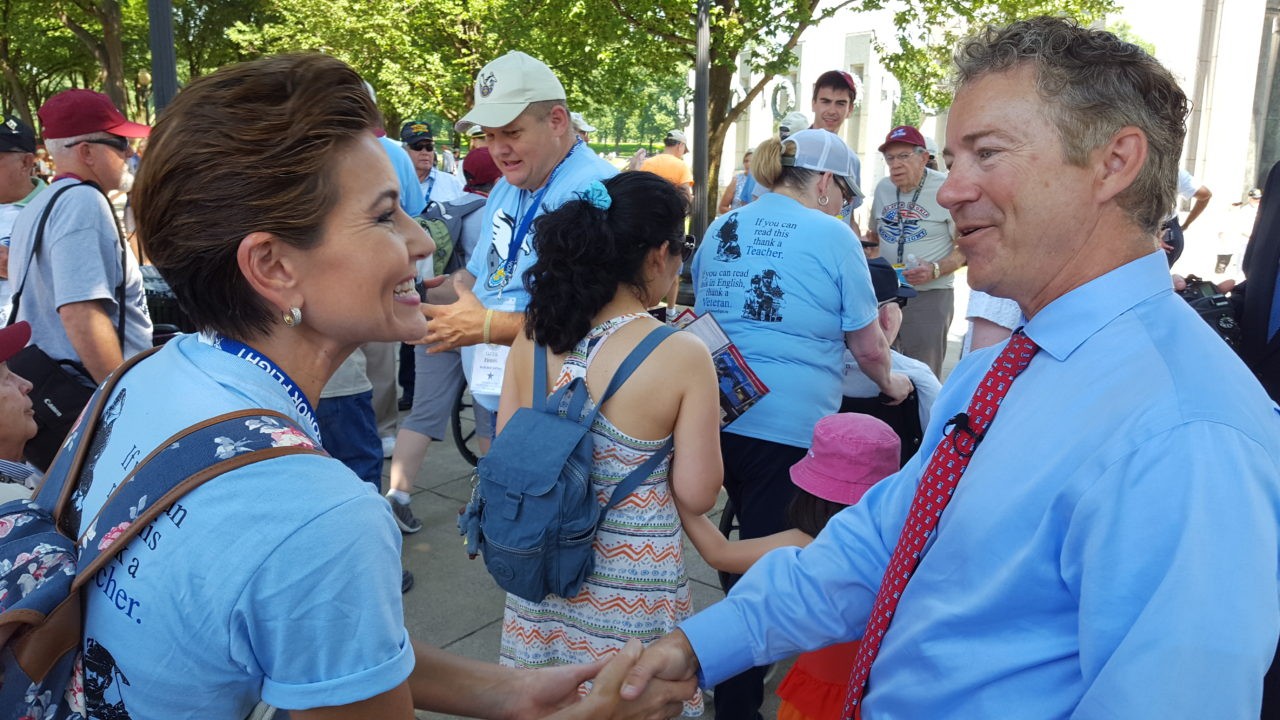
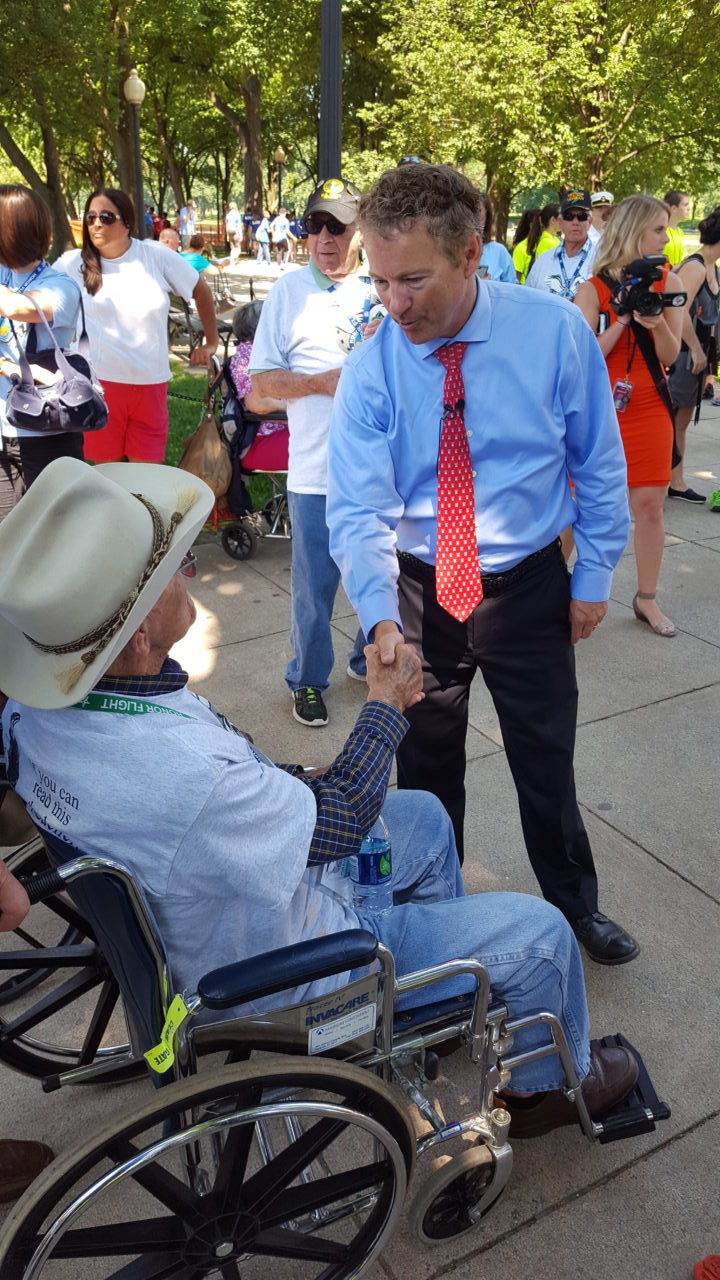
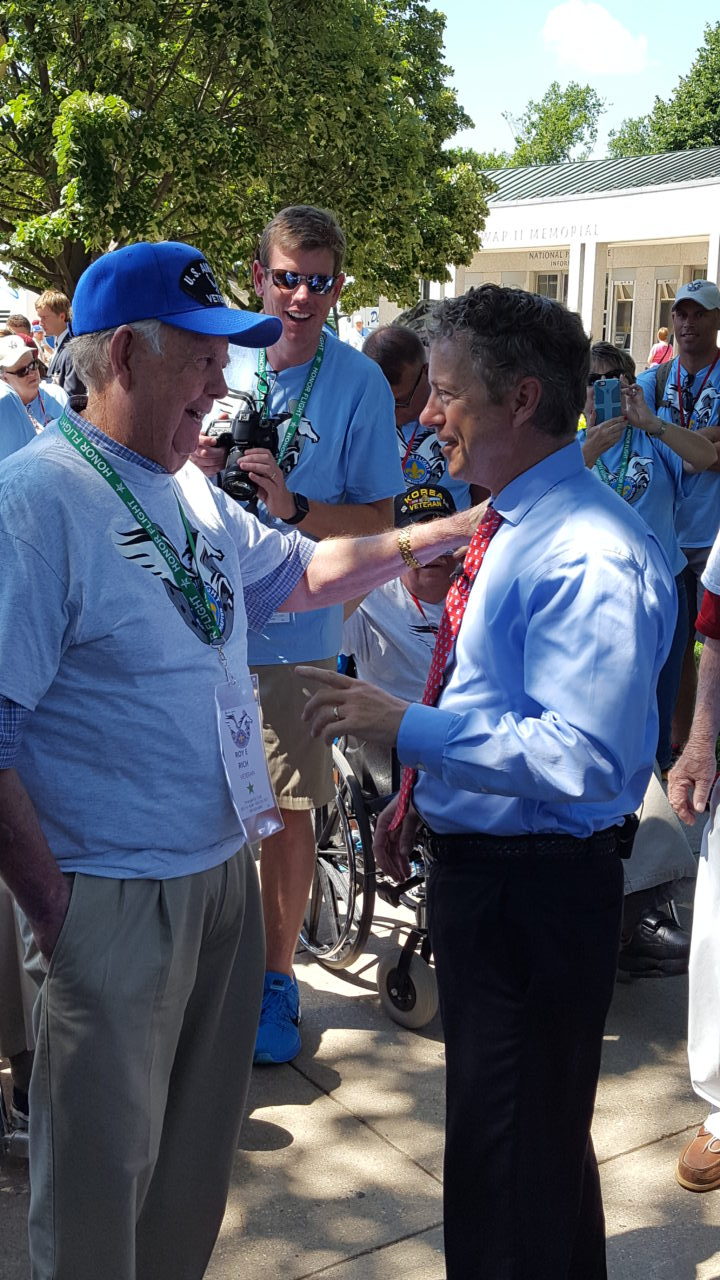
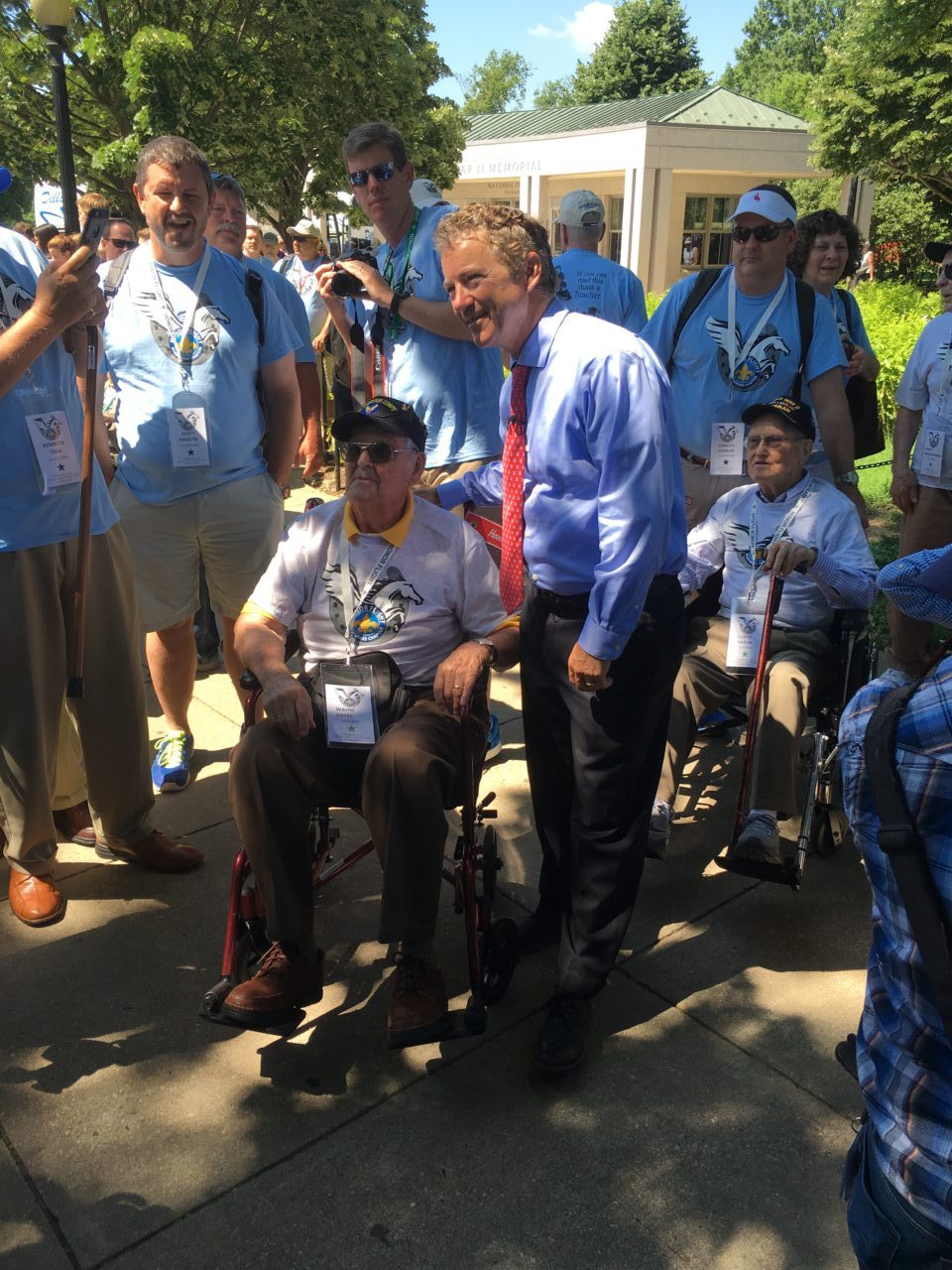



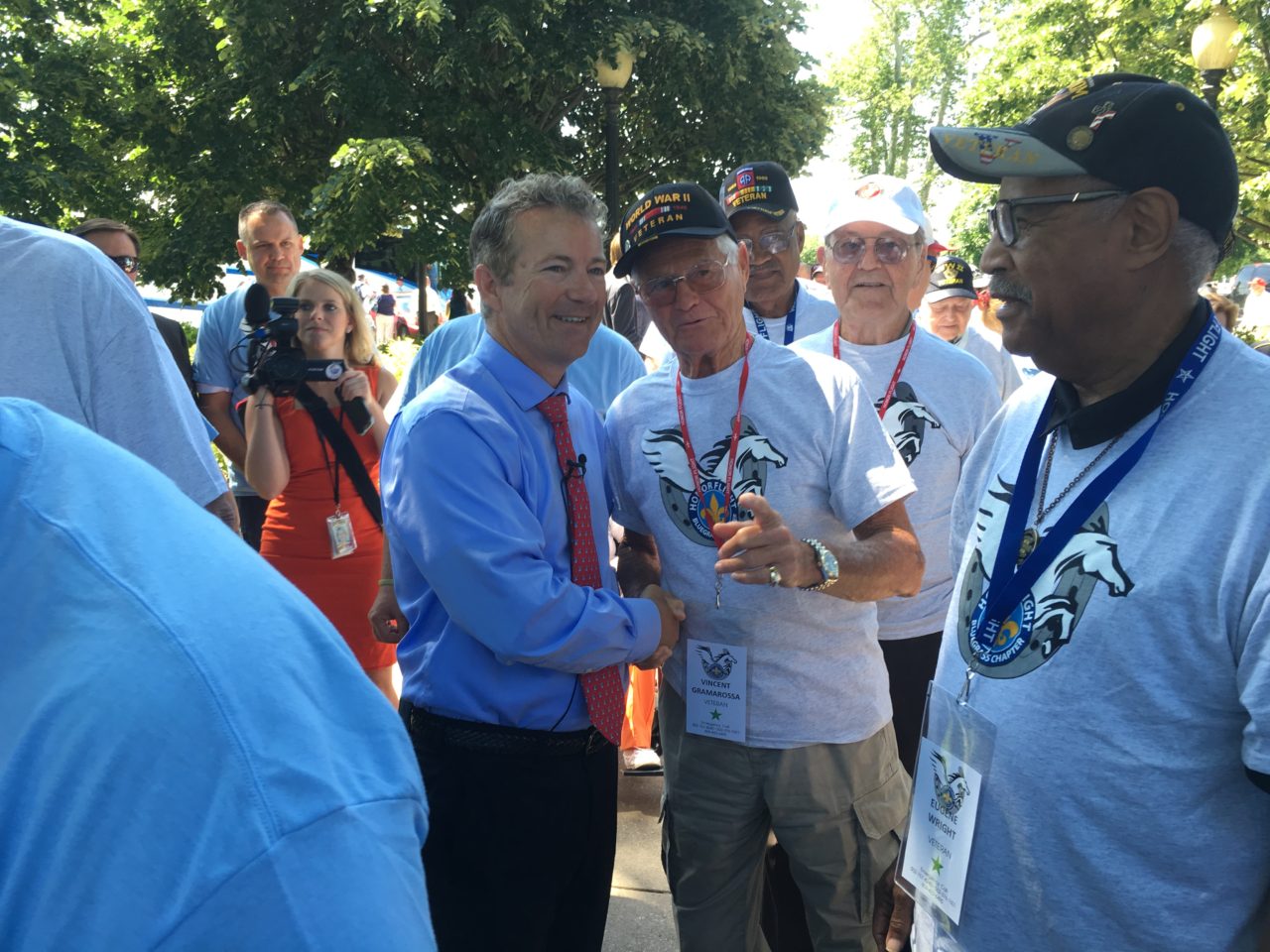
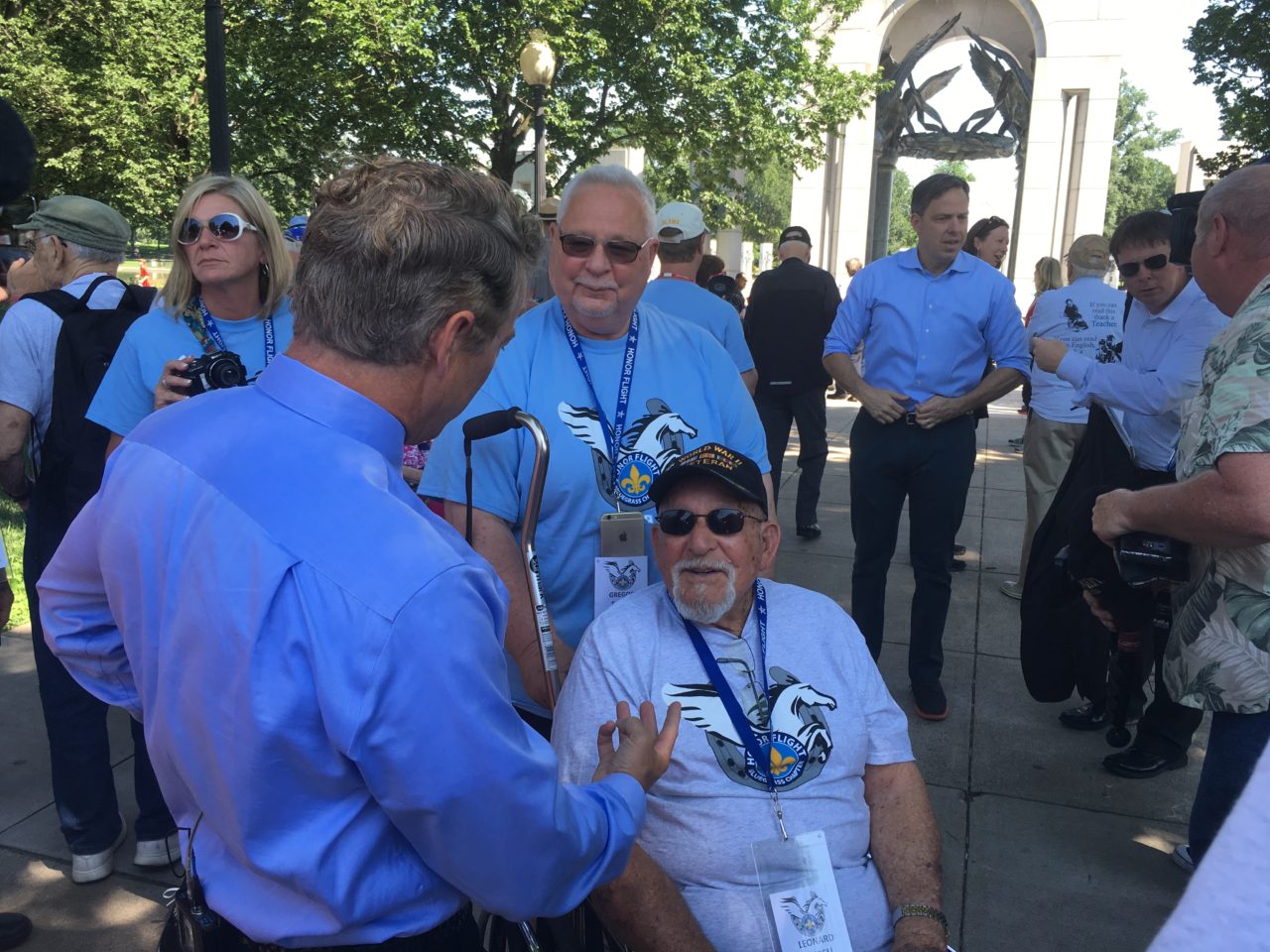

COMMENTS
Please let us know if you're having issues with commenting.